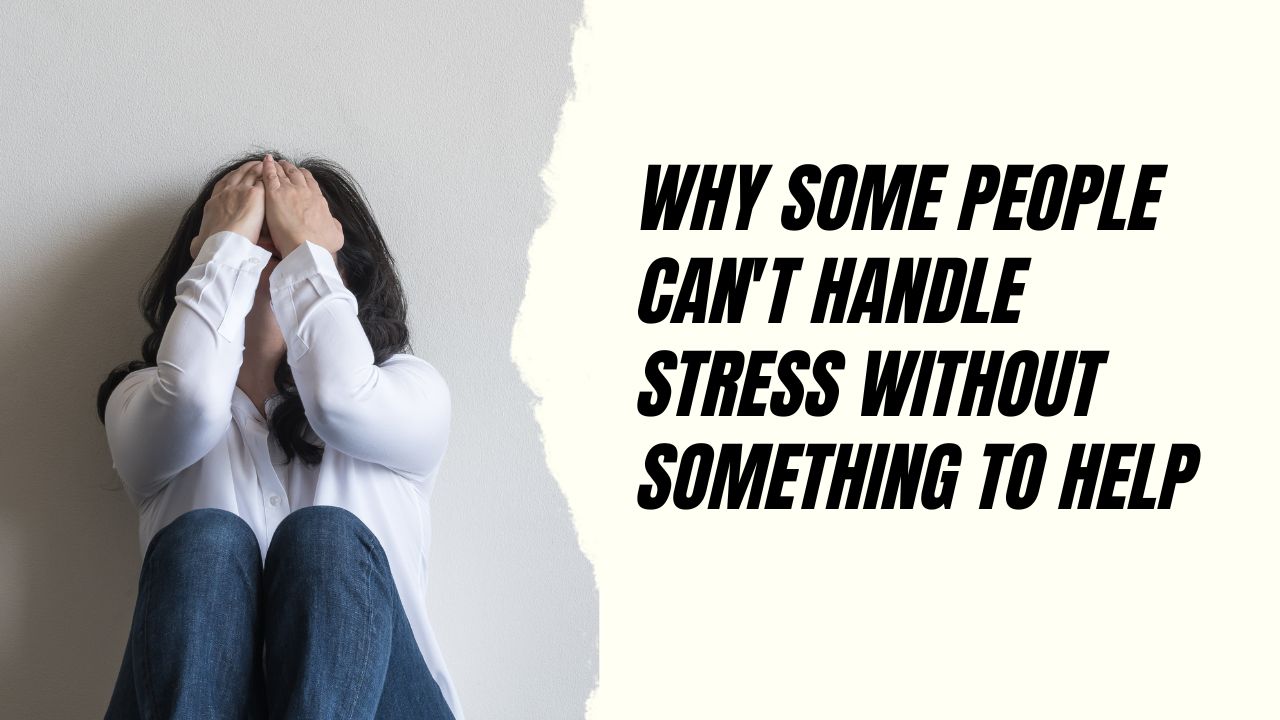Everyone feels stressed sometimes. Your teacher assigns three projects in one week. Your parents are fighting again. Your best friend stops talking to you for no reason. These things happen to everyone, but not everyone handles them the same way.
Some people can take a deep breath, talk to someone they trust, or go for a run when life gets overwhelming. Others feel like they need something more—maybe a drink, a pill, or something else that makes the stress disappear, even if it’s just for a little while. The question is: why do some people seem to handle stress naturally while others feel like they need help from substances?
Your Brain on Stress
When something stressful happens, your brain kicks into high gear. It releases chemicals like cortisol and adrenaline that are supposed to help you deal with whatever’s going on. Think of it like your body’s alarm system going off.
For some people, this system works pretty well. They feel the stress, their body responds, and then everything goes back to normal when the stressful situation passes. But for others, this alarm system seems to be broken or stuck on high volume all the time.
People whose stress response doesn’t work smoothly often feel overwhelmed by feelings that others might brush off more easily. Their heart race longer. Their mind won’t stop spinning. Sleep becomes impossible when you feel like that all the time, it makes sense that you’d want something to turn down the volume.
When Stress Becomes Too Much
There’s a big difference between feeling stressed about a test and feeling like stress is controlling your entire life. Some people experience what feels like constant pressure, even when nothing particularly bad is happening. Their nervous system seems to be stuck in emergency mode.
This might happen because of things that occurred earlier in life. Kids who grew up in homes where there was a lot of fighting, money problems, or other ongoing stress sometimes develop a nervous system that stays on high alert. Their brain learned early that the world isn’t safe, so it keeps looking for danger even when they’re older and safer.
For people dealing with chronic stress, finding relief becomes really important. This is where some people might benefit from structured support programs. An iop can provide the tools and environment needed to learn healthier ways of managing stress before it becomes overwhelming. These programs teach people how to recognize their stress patterns and develop better coping strategies.
Other people might have brains that just process stress differently from birth. Scientists have found that some people are naturally more sensitive to stress hormones or produce more of them than others. It’s not their fault—it’s just how they’re wired.
The Family Factor
You might notice that in some families, lots of people struggle with handling stress in healthy ways. This isn’t a coincidence. Part of it comes from genetics—the traits you inherit from your parents affect how your brain responds to stress.
But it’s not just about genetics. Kids also learn how to handle difficult situations by watching the adults around them. If your parents deal with stress by yelling, drinking, or avoiding problems, you might learn to do the same things. If they handle problems calmly and ask for help when they need it, you’re more likely to develop those skills too.
Some families also face more stress than others. Families dealing with money problems, serious illness, or other ongoing difficulties create environments where everyone feels stressed most of the time. Kids growing up in these situations often don’t get to learn what “normal” stress levels feel like.
Different Ways People Cope
When stress feels unbearable, people look for ways to make it stop. Some of these ways are healthy and some aren’t, but they all serve the same purpose—making the person feel better right now.
Healthy coping might look like calling a friend, going for a walk, listening to music, or doing something creative. These activities help process stress without creating new problems.
Unhealthy coping often involves things that work really well in the moment but cause problems later. Alcohol, drugs, overeating, or completely avoiding responsibilities all provide temporary relief from stress. The problem is that these solutions often create bigger stresses down the road.
For people whose stress feels overwhelming, unhealthy coping can seem like the only option that actually works. When you’ve tried breathing exercises and talking to friends but still feel like you’re drowning, something that immediately makes the feeling go away seems like a miracle.
The Stress-Relief Trap
Here’s where things get complicated. When someone finds something that reliably makes stress disappear—like alcohol or prescription pills—their brain starts to rely on that solution. The brain is smart and efficient, so it remembers what worked before and suggests using it again next time.
Over time, the person might find that they need their stress-relief method more and more often. What started as occasional help during really tough times becomes something they reach for whenever they feel uncomfortable at all.
This happens because their brain stops developing other ways to handle stress. Instead of learning different coping skills, they become dependent on the one thing that seems to work. Eventually, they might find that they can’t handle normal daily stress without their preferred method of relief.
Breaking the Pattern
People who struggle with stress don’t have to stay stuck in unhealthy patterns forever. The brain is remarkably good at learning new ways of doing things, even after years of doing them the same way.
Learning to handle stress in healthy ways takes practice and often requires help from others. This might mean learning relaxation techniques, changing thought patterns that make stress worse, or addressing underlying issues that created the stress sensitivity in the first place.
Some people need professional help to break old patterns and develop new ones. This isn’t a sign of weakness—it’s actually really smart to get expert help when you’re trying to change something as complex as how your brain responds to stress.
The most important thing to understand is that people who can’t handle stress without help aren’t weak or broken. Their brains and life experiences have created a situation where stress feels unmanageable. With the right support and tools, anyone can learn better ways to cope with life’s inevitable challenges.




